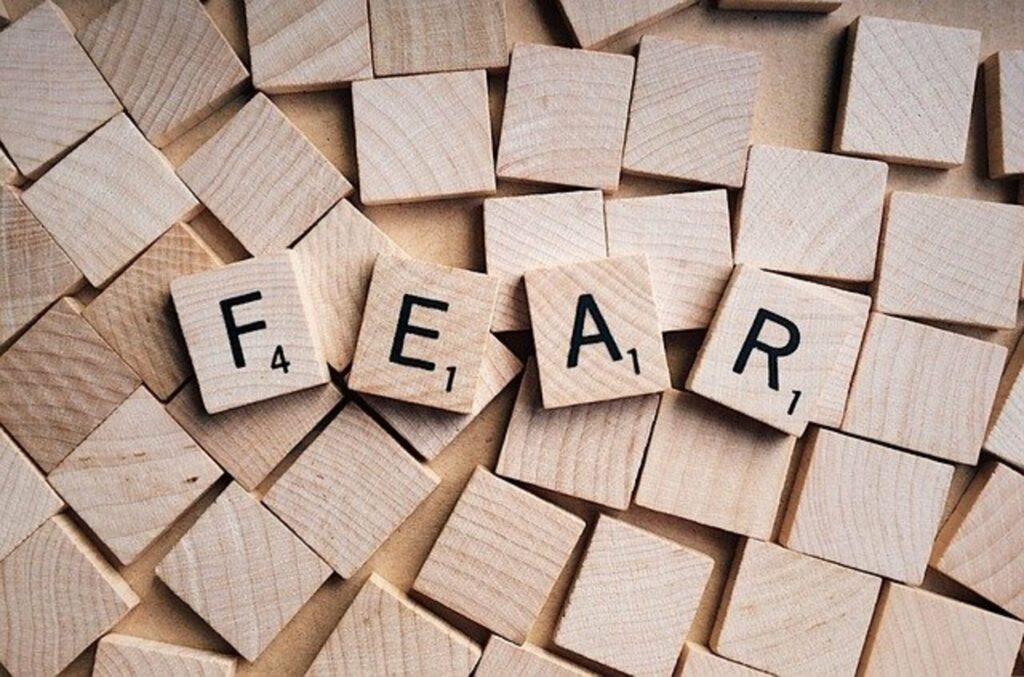The Messenger of Allah ﷺ once entered upon a young boy who was dying. He ﷺ asked him, “How are you?” The boy replied, “O Messenger of Allah, I swear by Allah that I have hope in Allah and I am scared over my sins.” The Messenger of Allah ﷺ said, “These two (qualities) do not gather in a slave’s heart in such a moment except that Allah gives him what he hopes for, and protects him from what he is scared of” (Tirmidhī).
Hope in Allah, known as rajā’ in Arabic, is to behold the vastness of Allah’s mercy and have full confidence in His generosity. Hope is an engine which propels the heart to its Beloved. Hope motivates us: if we didn’t have hope, we wouldn’t strive hard to please Allah. Hope makes our journey to Him beautiful.
Ibn al-Qayyim (raḥimahullāh) explains, “Hope (in Allah) is a necessity for the seeker, on his journey to Allah. The seeker would nearly perish if he lost hope even for a moment, for he moves between:
1) sins which he hopes will be forgiven;
2) shortcomings which he hopes will be rectified;
3) righteous deeds which he hopes will be accepted;
4) steadfastness which he hopes to attain and sustain;
5) closeness to Allah and a high rank with Him which he hopes to attain;
—and no seeker can ever afford to lose sight of these.”
How can we not have hope in Him?
When we recognise who Allah is, our hearts will be overwhelmed with hope. There is no one kinder, more loving or more generous than Him. Allah is al-Muṣawwir (The Fashioner); He has created us in the most beautiful form. Allah is al-Raḥmān (The Extremely Merciful); His mercy encompasses all of His creation. Allah is The Concealer of sins (al-Sittīr); He does not expose us despite the multitude of our sins. Allah is Gentle (al-Rafīq); He loves gentleness. Allah is The Most Compassionate (al-Ra’ūf); His compassion knows no ends. Allah is The Most Modest (al-Ḥayiyy); He feels shy to turn us back, empty-handed. He is the One True God, and there is no one like Him.
Every day, Allah attends to His creation: He forgives sins, eases difficulties and relieves distress. He mends the broken, enriches the poor, teaches the ignorant, guides the astray, directs the confused and helps the desperate. He frees the captive, feeds the hungry, clothes the naked and cures the sick. He accepts the repentance of the one who repents, and rewards the one who does good. He aids the oppressed and humbles the tyrant. He conceals faults and calms fears.
Hope in Allah’s Forgiveness
Reflecting on the vastness of Allah’s mercy will fill our hearts with hope. Allah is Free of all need, and yet we find His messengers telling those who reject Allah: “Can there be any doubt about Allah, the Originator of the heavens and the earth?! He is inviting you in order to forgive you your sins” (14:10).
Not only does Allah forgive, but he loves those who constantly repent and seek His forgiveness. The Prophet ﷺ explained that Allah’s delight at His servant’s repentance, is greater than the delight of a person who was travelling in a desert, lost all his belongings, and then unexpectedly found them.
As humans, we struggle to forgive each other, let alone reciprocate evil with good. Allah, on the other hand, does not only conceal and forgive, but He also “changes their evil deeds into good ones” (25:70). He showers us with worldly blessings as a result of us seeking forgiveness. Allāhu Akbar!
The Messenger of Allah ﷺ said, “Allah, Exalted is He, said: ‘Son of Ādam, as long as you call upon me and hope in Me, I will forgive you despite what you do, and I do not care. Son of Ādam, even if your sins were to reach to the clouds of the sky, then you seek forgiveness from Me, I will forgive you. Son of Ādam, even if you were to come to Me with nearly an earth full of sins, and then you meet me, not having associated anything with me, then I will surely bring you as much as the earth in forgiveness’” (Tirmidhī).
Real Hope Vs Deluded Hope
There is a difference between rajā’, which is real hope and tamannī, which is deluded hope or wishful thinking.
Rajā’ is when we strive hard to perform good deeds and then hope for Allah to accept them from us, and forgive us for our shortcomings in them.
On the other hand, tamannī is when we are heedless, do not obey Allah and commit endless sins, and then hope for Allah’s mercy and Paradise. This is a false hope, and a fool’s one. It is one of Shaytān’s tricks: to make you believe that ‘it’s ok, carry on doing what you’re doing; your Lord is Very Merciful and He will forgive you’. Tamannī (deluded hope) is characterised by laziness, whereas rajā’ (hope) is characterised by hard work and placing one’s trust in Allah.
Our beloved Prophet ﷺ said, “The intelligent one is he who overcomes his inner self (nafs), and works for what comes after death. And the stupid one is he who allows his nafs to pursue its desires, and has deluded hopes about Allah” (Tirmidhī).
Allah (subḥānahū wa taʿālā) says,
إِنَّ ٱلَّذِينَ ءَامَنُوا۟ وَٱلَّذِينَ هَاجَرُوا۟ وَجَٰهَدُوا۟ فِى سَبِيلِ ٱللَّهِ أُو۟لَٰٓئِكَ يَرْجُونَ رَحْمَتَ ٱللَّهِ وَٱللَّهُ غَفُورٌ رَّحِيمٌ
“Those who have believed, migrated, and fought in the path of Allah, it is they who can hope for Allah’s mercy: Allah is All-forgiving, Most Merciful” (2:218).
This ayah shows that the hope which believers have is accompanied by good action.
Husn al-Zann Billah
Hope (rajā’) springs from thinking good of Allah, and expecting the best from Him (ḥusn al-ẓann billāh). Allah loves for His servant to have good thoughts about Him, think the best of Him, and have hope in Him. Allah says in a ḥadīth qudsī: “I am as My servant thinks of Me, and I am with him when he remembers Me. If he remembers Me within himself, I remember him within Myself; and if he remembers Me in a gathering, I remember him in a better gathering. If he draws one span nearer to Me, I draw one cubit nearer to him; and if he draws one cubit nearer to Me, I draw a distance of two outstretched arms nearer to him; and if he comes to Me walking, I go to him running” (Bukhārī).
Ibn Ḥajar (raḥimahullāh) said that, “I am as My servant expects of Me” means “I am able to do whatever he expects I will do.” Imām al-Nawawī (raḥimahullāh) said, “The scholars said that the meaning of having good expectations of Allah is to expect that He will have mercy on him and forgive him.”
All of us will face difficulty in our lives. Sometimes, these difficulties may feel overwhelming. But instead of thinking ‘Why me? O Allah’, we should have good thoughts about Allah. We should expect good from Him in times of ease and difficulty, and we should believe that Allah wants good for us in all situations. We should always think the best of Him, and remember that He is al-Ḥakīm: The Wisest. Maybe there is a hidden wisdom in the difficulty. He is al-ʿAlīm: The All-Knowing. Maybe He knows something which we do not. He is al-Laṭīf: The Most Subtle. Perhaps this trial we’re enduring will be the key to our eternal success.
No matter what we are going through, we should never lose hope. In his deep pain and sorrow, Yaʿqūb (ʿalayhis-salām) complained to Allah and cried excessively, but he never lost hope in Allah. He said to his sons, “O my sons! Go and search (diligently) for Yusuf and his brother. And do not lose hope in the mercy of Allah, for only disbelievers lose hope in Allah’s mercy” (12:87)
Suhayl al-Quṭaʿī (raḥimahullāh) said, “I saw Mālik b. Dīnār in my dream and I said to him, ‘Abū Yaḥyā, tell me – what happened when you met Allah?’ He replied, ‘I came to Him with many sins; but my good expectations of Him (ḥusn al-ẓann) wiped them away.’”
The Greatest Hope
The best and loftiest type of hope is the hope of meeting Allah (subḥānahū wa taʿālā) Himself. The best thing a person can hope for is the pleasure of Allah, Paradise, and to see Allah (subḥānahū wa taʿālā) Himself.
Ibn al-Qayyim describes this type of hope as the “essence of īmān”. Allah (subḥānahū wa taʿālā) says,
فَمَنْ كَانَ يَرْجُوْا لِقَآءَ رَبِّهِ فَلْيَعْمَلْ عَمَلًا صَٰلِحًا وَّلَا يُشْرِكْ بِعِبَادَةِ رَبِّهِٓ أَحَدًَا
“So whoever hopes for the meeting with their Lord, let them do good deeds and associate none in the worship of their Lord” (18:110).
“The most precious gift in my heart is hope in You; the sweetest words on my tongue are Your praise, and the most beloved moment to me is the moment in which I will meet You.” – Yaḥyā b. Muʿādh (raḥimahullāh)
The Positive Outcomes of Hope in Allah
1) Hope motivates us to worship Allah more frequently, and enjoy it.
Hope propels us to worship Allah and do good deeds. Having hope in receiving reward and meeting Him encourages us to carry on and do more. It is also a key ingredient for finding joy and sweetness in worship. Ibn al-Qayyim (raḥimahullāh) writes, “Hope is the caravan leader that spurs one to journey to Allah; it makes the journey more palatable and encourages him to continue going forward and stay on the path. Were it not for hope, no one would take up this journey, for fear alone does not motivate anyone. It is love that motivates, fear that drives, and hope that spurs.”
2) Hope allows us to manifest our ʿubūdiyyah.
Hope makes us turn to Allah at all times and humble ourselves in desperate need, which is the essence of ʿubūdiyyah (servitude to Allah). Hope demonstrates the servant’s need for Allah – how he does not rely on himself for even the blink of an eye, but rather places his hope only on Allah. Instead of attaching his hope to the world or others, his heart is attached to Allah. Thus, hope increases our īmān in Allah, and is a means of affirming His Oneness.
3) Hope makes our heart attached to Allah alone and love Him.
The more we hope and receive from Allah that which we hope for, the more our gratitude and love for Allah increases. When we have hope in Allah, we are eagerly waiting for something from Him. This makes us remember Him more often (dhikr).
Hoping in Allah alone frees us from unhealthy attachments to His creation, who are ultimately weak and will often let us down.
4) Hope propels us to make duʿā’.
Duʿā’ is one of the most important acts of worship and it is not possible without hope. Ibn al-Qayyim (raḥimahullāh) writes, “The basis of duʿā’ is hope. If the person making duʿā’ did not hope for his request to be granted, he would not make duʿā’.”
Thus, hope is not limited to matters of the hereafter, but also matters of this world, as we have been instructed to make duʿā’ for everything, including “the strap of the sandal when it breaks” (Tirmidhī).
Our hope in Him (and not His creation) to fulfil our worldly requests is in fact a strong indication of our belief in Him.
How Do You Attain Hope in Allah?
1) Reflect on the blessings of Allah.
2) Reflect on the amazing rewards He has promised.
3) Reflect on the mercy and kindness of Allah.
Imām al-Ghazālī (raḥimahullāh) beautifully summarises the above three points: “Hope is attained through recognising Allah’s kindness, His generosity, His comprehensive blessings, and the subtleties of His creation…When one gains certainty (yaqīn) in Allah’s promise of reward, and one becomes aware of His kindness – both of these will undoubtedly lead to attaining hope.”
4) Reflect on the Names of Allah which invoke hope.
Increase your hope in Allah by reflecting on His Names. For example, when you learn about Allah The Ever-Pardoning (al-ʿAfuww), hope for his pardon; or Allah The Most Generous (al-Karīm), hope for his generosity; or Allah The Ever-Giving (al-Wahhāb), hope for endless gifts and favours from Him.
The more we know Allah, the more hope we will have in Him. Ibn al-Qayyim writes, “The strength of one’s hope is proportional to the strength of one’s knowledge of Allah’s Names and Attributes, and the triumph of His mercy over His anger.”
5) Reflect on the Qur’ān (tadabbur).
Reflect and re-read the āyāt which convey hope. Pause and let your heart feel overwhelmed by them. The āyāt about Allah Himself, His favours upon us and Paradise are all beneficial in this regard.
According to many scholars, the āyah which inspires the most hope is:
“Say, (O Prophet, that Allah says,): O My servants who have transgressed against their souls! Do not lose hope in Allah’s mercy, for Allah certainly forgives all sins. He is indeed the All-Forgiving, Most Merciful” (39:53).
Even though it is sinners who are being addressed here, Allah addresses them as ‘MY’ servants. He attributes them to Himself. He continues then to remind them to not lose hope in His mercy, and to seek forgiveness from Him, as He is The Most Forgiving.
ʿAbdullāh b. ʿAbbās (radiy Allāhu ʿanhumā) said, “Whoever makes the servants of Allah despair from repentance after this, then he has rejected the book of Allah.”
Another heart-warming āyah is:
نَبِّئْ عِبَادِىٓ أَنِّىٓ أَنَا ٱلْغَفُورُ ٱلرَّحِيمُ
“Inform My servants (O Prophet) that I am truly the All-Forgiving, Most Merciful” (15:49).
Balancing Hope and Fear
The believer is always in a state of both hope and fear. ʿUmar (raḍiy Allāhu ʿanhu) said, “If a caller from the sky was to announce: ‘People! All of you are going to enter Paradise, except for one person’, I would fear that I was that one person. And if a caller from the sky was to announce: ‘People! All of you are going to enter the Hell-fire, except for one person’, I would hope that I was that one person.” (Click here to read about fearing Allah).
We have to balance the extremes of hope and fear. Too much hope can make us complacent and neglectful of our duties. And too much fear can cripple us with despair.
The pious people of the past would advise that during good times, when we are more likely to forget Allah (ʿazza wa jall), we should increase our fear of Him. And during difficult times, we should increase our hope in Him. Other scholars stated that throughout one’s life, fear should be dominant over hope; but towards the end of one’s life, hope should become dominant. Jābir (raḍiy Allāhu ʿanhu) said, “I heard the Prophet ﷺ say three days before his demise: ‘None of you should die, except with thinking good of Allah (husn al-ẓann)’” (Muslim).
When Muʿādh b. Jabal (raḍiy Allāhu ʿanhu) was in his final moments, he turned to Allah (ʿazza wa jall) and said, “O Allah, indeed I used to fear you, but now I have hope in You. O Allah, indeed, you know that I did not love the world nor want to remain in it for long to dig wells or plant trees. Rather it was to experience thirst in the midday heat during the long fasts; to struggle through standing for hours at night in prayer; and to kneel in the company of scholars in the gatherings of dhikr.”
May Allah make us of those who hope in Him, fear Him and love Him.








